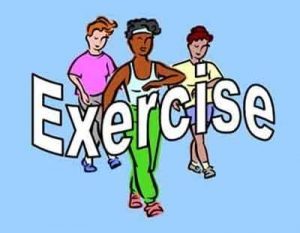- Home
- Editorial
- News
- Practice Guidelines
- Anesthesiology Guidelines
- Cancer Guidelines
- Cardiac Sciences Guidelines
- Critical Care Guidelines
- Dentistry Guidelines
- Dermatology Guidelines
- Diabetes and Endo Guidelines
- Diagnostics Guidelines
- ENT Guidelines
- Featured Practice Guidelines
- Gastroenterology Guidelines
- Geriatrics Guidelines
- Medicine Guidelines
- Nephrology Guidelines
- Neurosciences Guidelines
- Obs and Gynae Guidelines
- Ophthalmology Guidelines
- Orthopaedics Guidelines
- Paediatrics Guidelines
- Psychiatry Guidelines
- Pulmonology Guidelines
- Radiology Guidelines
- Surgery Guidelines
- Urology Guidelines
Moderate exercise improves muscle function and physical ability in sickle cell disease

Exercise offers benefits for a wide range of health conditions in a variety of medical conditions ranging from cardio diabetes to cancer. But it has historically been considered too dangerous for people living with sickle cell disease (SCD).In Sickle cell disease, strenuous physical activity increases blood flow and can lead to serious complications including heart problems and episodes of severe pain known as vaso-occlusive crises.
A new study published in the journal Blood has found that low-to moderate-intensity exercise maybe not only safe but beneficial in patients of sickle cell disease. It appears to improve skeletal muscle microvasculature among patients with sickle cell disease.
"When physical exercise is tailored to be light-to-moderate in intensity, the risk of problems is limited," said lead study author Laurent Messonnier, Ph.D., of the Université Savoie Mont Blanc in France. "Performed regularly, this type of exercise may induce beneficial muscle microvascular and functional adaptations that improve patients' physical abilities and quality of life."
The researchers recruited 40 patients with SCD and randomly assigned them to two groups. Half followed their normal lifestyle, which included little physical activity apart from everyday routines such as walking to the bus stop or grocery shopping. The other half participated in an individually tailored regimen of moderate-intensity 40-minute sessions on a stationary bicycle three times per week. Researchers monitored participants' exertion levels closely during each exercise session, tracking circulating oxygen (saturation), blood lactate levels, and perceived exertion to ensure that participants maintained a moderate level of intensity throughout.
After eight weeks, the researchers took biopsies of muscle tissue from participants' thighs. Among the 32 participants for whom complete data were available, the muscle biopsies revealed a significant increase in the density of small blood vessels known as capillaries, the number of capillaries around the muscle fiber, and the surface area through which oxygen and nutrients can flow between blood and muscle in participants who had exercised.
Previous studies have found SCD can cause blood vessels in muscle to become fewer. The changes observed in this study suggest moderate-intensity exercise may help counteract some of these effects, according to researchers, which should improve blood and oxygen delivery to tissues.
Participants in the exercise group also had significant improvements in their muscle function and overall physical ability. Some anecdotally reported improvements in sleep, concentration, and social interactions, as well.
Dr Messonnier emphasized that further research is needed to understand the benefits—and risks—of exercise in patients with SCD. In this study, no adverse events requiring hospital admission occurred in the training group.
"The recent literature argues in favour of the promotion of endurance exercise training for patients with SCD," he said. "However, we need to stay cautious. Before any exercise, people with SCD should be tested and receive professional guidance on what level of exercise will be safe and appropriate."
The study represents an initial attempt to determine whether moderate-intensity exercise is safe, feasible, and potentially beneficial in people living with SCD, but is limited by its small sample size and short duration. Researchers suggested future studies could explore the use of exercise in a larger, more diverse group of participants, determine effects of a longer training period, and investigate the impact of exercise on a broader range of clinical outcomes.
Journal Information: Blood
For more details click on the link: https://doi.org/10.1182/blood.2019001055

Disclaimer: This site is primarily intended for healthcare professionals. Any content/information on this website does not replace the advice of medical and/or health professionals and should not be construed as medical/diagnostic advice/endorsement or prescription. Use of this site is subject to our terms of use, privacy policy, advertisement policy. © 2020 Minerva Medical Treatment Pvt Ltd